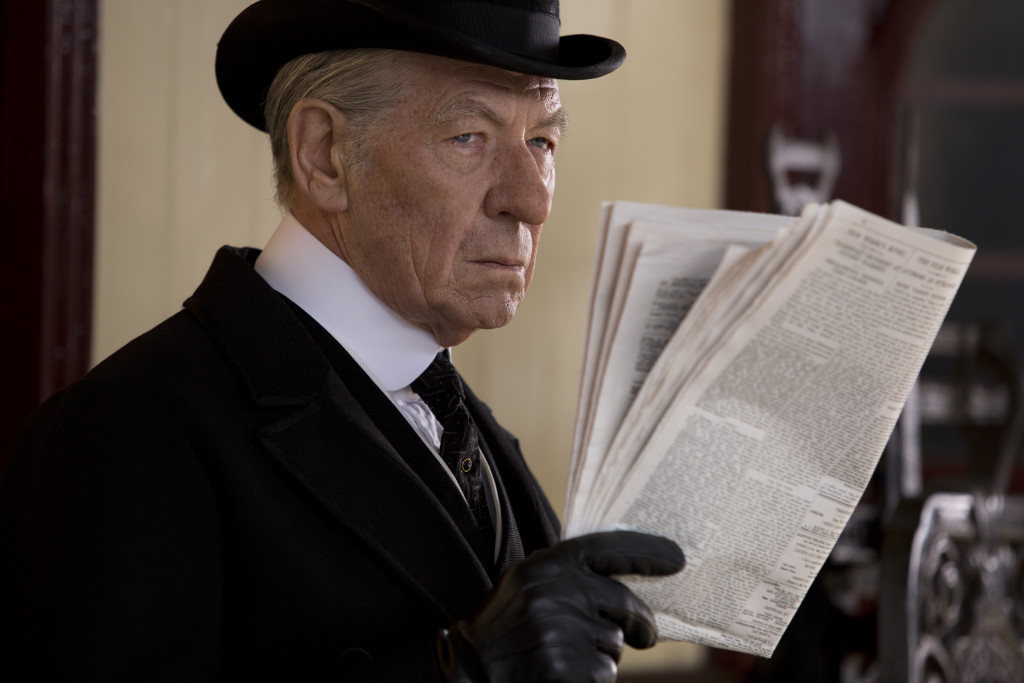By: Mark Barber
Current representations of Sherlock Holmes are filled with weighty world-threatening stakes and explosive action sequences. Bill Condon’s more peaceful and contemplative Mr. Holmes seeks to rectify that inclination, offering a more poignant take on the famous deerstalker-wearing detective.
Indeed, Sherlock’s trademark cap never appears in the film, and for good reason. Mr. Holmes is about the interplay between fact and fiction, spending much of its running time reconciling the elderly Holmes’ (Ian McKellen) in-world ‘real-life cases’ with their fictional equivalents, written in the film by his famous associate Dr. John Watson.
Resigned to a cottage life in rural England, a 93-year-old Sherlock Holmes attempts to remember the case that drove him to retirement. Faced with a degenerative memory disease (that is never specifically mentioned, but is implied to be either Alzheimer’s or dementia), Holmes’ memory is sparked by his housekeeper’s son, who shares a similar fascination with the deduction and facts, and also shares in the detective’s penchant for bee-keeping.
The narrative consists of many flashbacks that detail Holmes’ last case and his recent trip to Japan to acquire a medicinal herb that might mitigate his memory loss. Both of these analeptic subplots are accompanied by the central storyline, where the relationship between Holmes and the son of the housekeeper (Laura Linney), Roger (Milo Parker) provides the film with emotional grounding. McKellen’s crusty Holmes plays well off of Roger’s youthful idealism, and yet doesn’t come across as another tired pairing of young and old.
Thematically, though, Condon’s film works best when it engages dialogically with the more fantastical iterations of Sherlock Holmes, particularly the recent Guy Ritchie films and the Gatiss/Moffat BBC series. Offering a rebuttal of sorts, Mr. Holmes depicts what the life of a real, aged Sherlock Holmes might have looked like.
One of the main conflicts of the film involves Holmes overcoming his obfuscated memory of his past, which, exacerbated by his memory loss, is heavily informed by Dr. Watson’s fictional accounts of his cases. Holmes’ status as a cultural icon in the film is so widespread that in-world fans often express disappointment when they are confronted with the real thing. In simultaneously polarizing and intertwining reality and fiction, Mr. Holmes is a melancholic representation of how actual fans respond in such situations: ‘fans’ of Watson’s dramatizations are dismayed by the real Holmes, who wears a tall hat instead of a deerstalker, and prefers cigars to smoking a pipe.
With its minimalist lens, Mr. Holmes is a finely crafted film. The acting is top-notch, the score is well-composed, and the pace is well-executed. Boasting a strong, nuanced reflection on the distinction between reality and fiction, Mr. Holmes provides a compelling and different take on the eponymous character.




Be the first to comment